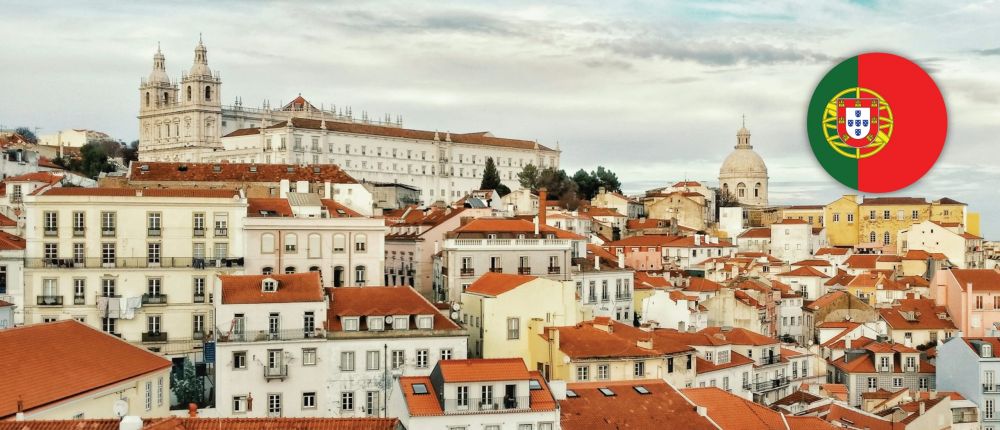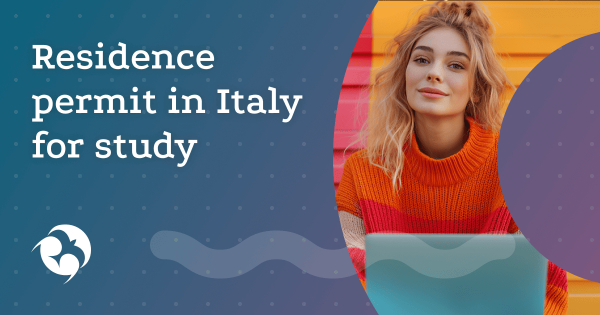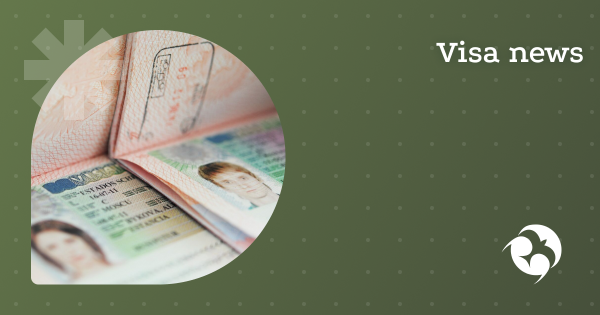Portuguese business immigration programs among entrepreneurs from the CIS countries are becoming more and more attractive. Unlike investment golden visas, which require substantial investments, company registration opens up a more accessible path to European residency.
Visa Digital Nomad takes care of the collection of documents and registration of the required status. Thanks to professional help, you not only insure yourself against rejection, but also speed up all processes at all stages – from collecting documents to the nuances of processing and then obtaining visas for family members.
Business immigration programs in Portugal are regulated by national immigration legislation and Decree Law No. 85-B/2025. The main types of visas for entrepreneurs are:
- D2 visa (business visa) – for company owners and individual entrepreneurs.
- Startup Visa – for creators of innovative projects, regulated by articles 60 and 81 of the Portuguese Immigration Law.
The programs are open to citizens of non-EU countries who:
- Have reached the age of majority (18 years old).
- Have no criminal record.
- Have sufficient financial resources.
- We are ready to conduct real business activities in Portugal.
Info. The family of the main applicant (spouse, children, dependent parents) can obtain a residence permit through family reunification.
The key advantage of business programs is the absence of fixed minimum investment requirements, which makes them more affordable than the golden visa. At the same time, entrepreneurs can choose almost any type of business.:
- Tourism and hotel business.
- IT services and software development.
- Consulting and professional services.
- Trade and e-commerce.
- Production of goods.
- Public catering.
A Portuguese entrepreneur visa allows you to conduct business based on the following organizational and legal forms:
- Sociedade por Quotas (Lda) is a limited liability company. This is the most popular form for small and medium-sized businesses.
- Individual Entrepreneurship (IP) – suitable for personal services.
- Sociedade Anônima (SA) is a joint–stock company for large businesses.
Info. After obtaining a residence permit through a business, the path to permanent residence opens in 5 years.
Key requirements
The D2 business visa is the most flexible tool for business immigration. The minimum investment requirements have not been officially established, but the recommended capitalization of the business is from 1,000 €. The program allows you to open companies in any sector of the economy without the need to obtain approval from Portuguese business incubators.
A startup visa requires more serious preparation. The fundamental difference lies in the need to receive the support of a certified incubator and the availability of higher education from the main applicant. The review process can take up to 6 months only at the stage of project approval by the incubator.
A candidate for a D2 visa must meet the basic criteria. At least 18 years of age is a prerequisite for submitting an application. Equally important is the lack of criminal records. In addition, the applicant must confirm the availability of funds in the amount of at least 10,440 € for the main candidate. When immigrating with a family, an additional 50% of this amount must be added for the spouse (5220 €) and 30% for each child (3132 €).
Info. A prerequisite is the availability of housing in Portugal (a lease agreement for at least a year or documents on ownership). It is impossible to open a bank account or enter into business agreements without a tax number (NIF).
A business plan for a D2 visa must demonstrate not only commercial viability, but also benefits for the Portuguese economy. The document should contain a market analysis, financial forecasts, a marketing strategy and an operational plan. Special attention is paid to the potential for job creation and the innovative component of the project. If an entrepreneur buys a ready-made business, it is required to provide the company’s founding and financial documents. When opening a branch of an existing foreign company, it is necessary to provide reports confirming the successful activities of the parent organization.
Terms of registration
The D2 visa is issued for 4 months. During this period, the entrepreneur must arrive in Portugal and apply for a residence permit. After arrival in the country, applications for a residence permit are considered within 90 working days, although in practice the time may increase. According to the experience of lawyers, the process of obtaining a residence permit can take from 6 months to a year. The first residence permit is issued for 2 years with the possibility of extension for 3 years.
Tax features
Updated tax rates will come into effect in Portugal in 2025. The standard corporate tax rate is reduced from 21% to 20%. For small and medium-sized enterprises, a preferential rate of 16% applies for the first 50,000€ profit instead of the previous 17%. The standard VAT rate of 23% applies to most goods and services, but preferential rates of 13% and 6% are provided for certain categories.
Companies in the interior of Portugal receive special advantages, where the corporate tax rate is only 12.5% for the first 50,000euros of profit. In the autonomous territories of Madeira and the Azores, different conditions apply – the rate for small businesses is 11.9%.
Requirements for presence in the country
Holders of a D2 visa must comply with strict requirements for staying in the country. In the first 2 years, you must stay in Portugal for at least 1.5 consecutive years or 16 months in total. When extending the residence permit for the next 3 years, the requirements increase: 2.5 consecutive years or 28 months in total. The maximum period of continuous absence should not exceed 6 consecutive months or 8 months for a total of 2 years. Violation of these requirements may result in a refusal to renew the status. Unlike the golden visa (presence 7 days a year), the D2 business visa requires a real presence and active participation in the life of the country.
The path to permanent residence and citizenship
Permanent residence can be obtained after 5 years of continuous residence in a country with a temporary residence permit. An additional requirement is knowledge of Portuguese at the basic A1 level. The permanent resident card is valid for 5 years.
Portuguese citizenship also becomes available 5 years after obtaining the first residence permit. Requirements include language proficiency at A2 level, no criminal record, and compliance with tax obligations.
The D6 (Family reunification) visa allows close relatives of the main applicant to obtain resident status. Spouses, children under the age of 18, adult children who are students of Portuguese universities and parents over the age of 65 have the right to reunite, provided they are financially dependent.
Project investment and cost
A limited liability company (LDA) formally requires only 1€ per participant. However, in practice, the range from 1,000 € to 5,000 € is considered the optimal starting capital, as it demonstrates the seriousness of intentions. 50% of cash contributions can be deferred for up to 5 years. Participants can also make contributions in the form of property, equipment, or intellectual property.
The basic government costs of registering a company vary depending on the chosen method. Standard registration costs from 360€ to 1,000€. The Empresa Online online service offers other rates – 220€ with a pre-approved charter or 360€ with an individual one.
The Empresa na Hora express service allows you to register a company in 1 hour, the cost of the service is 360-400€. Despite the higher price, this option is popular among D2 visa applicants because it speeds up the entire permit process.
Registration in the Commercial Register costs 200-500€, depending on the size of the authorized capital. For companies with a capital of up to 25,000€, a minimum rate of about 200€ is applied. The stamp duty (Imposto do Selo) is 0.8% of the authorized capital. For a company with a capital of 10,000€, this means an additional 80€. Publication in the official newsletter of “Diário da República” costs 150-350€. This procedure is mandatory to ensure the publicity of the company’s creation and its accessibility to potential partners and creditors.
Notarization of documents represents a significant expense item. Notary services range from 500€ to 2,000€, depending on the complexity of the corporate structure. Notary fees usually amount to 0.5-1% of the authorized capital, but cannot be less than 500 €. The preparation and translation of documents into Portuguese adds €100-400 to the notary’s expenses. All foreign documents require apostillation and notarization.
Additional costs include:
- D2 visa – 110€.
- Submitting an application to AIMA costs 156 euros (including biometric data withdrawal).
- The resident‘s card costs 160 euros. This amount is fixed and does not depend on the type of company or the size of the investment.
- Compulsory medical insurance costs 400-800€ annually, depending on the age of the applicant and the amount of coverage.
- Opening a corporate bank account requires a one-time fee of 50-100€ plus a monthly maintenance fee of 10-30€.
- The monthly services of a certified public accountant start from 150€ plus VAT.
The total cost of registering a business with professional support is about €6,000 in the first year, including all government fees, opening a bank account and legal registration. The annual cost of maintaining the company after the first year is reduced to 600 €.
The total cost of obtaining a residence permit through a business in Portugal ranges from 2,000-3,000euros for self-registration to 10,000-15,000euros with full professional support. The average cost level with partial legal support is 5,000-8,000euros.
Step-by-step instructions
Obtaining a residence permit through entrepreneurial activity in Portugal requires a systematic approach. Our practical experience shows that the success of an application depends on careful preparation at each stage.
1. Assessment of opportunities. Determining the realism of plans. The applicant analyzes his financial resources, compliance with minimum income requirements and availability of funds for business capitalization.
2. Preparation of a business plan. A high-quality business plan becomes the key to obtaining a D2 visa. The document should contain a detailed description of the business idea, market analysis, financial forecasts and a development strategy for the first 3 years of operation. Special attention is paid to substantiating the benefits to Portuguese society.
3. Company registration. Obtaining a tax number (NIF). Foreign citizens register the number remotely through a tax representative. It is impossible to open a bank account or sign a rental agreement without NIF. The company is registered through the online service “Empresa Online” or the express service “Empresa na Hora”. The procedure takes from 1 day to a week.
4. Preparation of documents. The package of documents for the D2 visa includes an international passport, a certificate of non-criminal record, medical insurance, proof of financial resources and a rental agreement for at least a year. All foreign documents require apostillation and notarized translation into Portuguese. Business documents make up the second group: company registration certificate, bank statements, tax certificates, employment contracts, if any.
5. Applying for a residence permit. The first stage takes place at the Portuguese Consulate at the applicant’s place of residence. The review of the documents takes up to 60 days from the date of submission of the full package. If the decision is positive, a D2 visa is issued for a period of 4 months with the right to double entry. Upon arrival in Portugal, the applicant applies to AIMA (Agency for Integration, Migration and Asylum) to apply for a residence permit.
6. Getting permission. Consideration of the application in AIMA takes from 3 to 6 months from the date of delivery of biometric data. During this period, the applicant receives a temporary residence permit allowing him to stay in the country and conduct business. The completed residence permit card is sent by mail to the specified address or issued in person at the AIMA office.
Our specialists have many years of experience working with Portuguese migration authorities and know the current AIMA requirements. We provide comprehensive support before receiving a ready-made residence permit card, minimizing the risks of failure and saving your time at all stages of the procedure.
It may take more than a year to complete all the registration stages on your own and require multiple trips. Every mistake in the documents or inaccuracy in the business plan can lead to rejection and the need to start the process all over again. We offer full turnkey support with personal advice and an assessment of the possibilities. Get a free consultation and find out the exact time frame for registration in your case.
Risks and ways to minimize them
Obtaining a residence permit in Portugal through the opening of a company involves a number of typical risks that can significantly slow down the process or lead to refusal. Understanding these pitfalls allows you to prepare well in advance and increase your chances of success.
Documentary issues
- Incomplete or incorrect preparation of documents remains the main reason for refusals of the D2 visa. The most common mistakes include the absence of an apostille on a criminal record certificate, incorrect translation of financial documents, or providing a bank statement without an official seal. Even minor technical issues, such as an incorrectly placed check mark in the questionnaire or a photo that does not meet the requirements, can lead to automatic rejection.
- Problems with the translation of documents also account for a significant proportion of refusals. Portuguese consulates only accept documents with notarized translations from accredited translators. Self-translation or work with unapproved specialists is guaranteed to lead to the rejection of the package of documents.
- Errors in financial documents are especially common. Some banks only provide online statements, which consulates do not always accept. Insufficient funds in the account is another critical problem affecting the result.
Financial risks
- Portuguese banks have tightened the requirements for income verification, especially for citizens of countries under EU sanctions.
Underestimating total expenses often leads to financial difficulties in the final stages. In addition to the obvious costs of company registration and visa fees, the additional costs mentioned above should be taken into account. - Over the years of working with Portuguese migration programs, our specialists have developed a comprehensive risk minimization system based on a deep understanding of the specifics of local legislation.
We analyze not only formal compliance with the requirements, but also potential “red flags” that may raise additional questions from consular staff. Our experience shows that early detection of problematic issues avoids 85% of potential failures.












